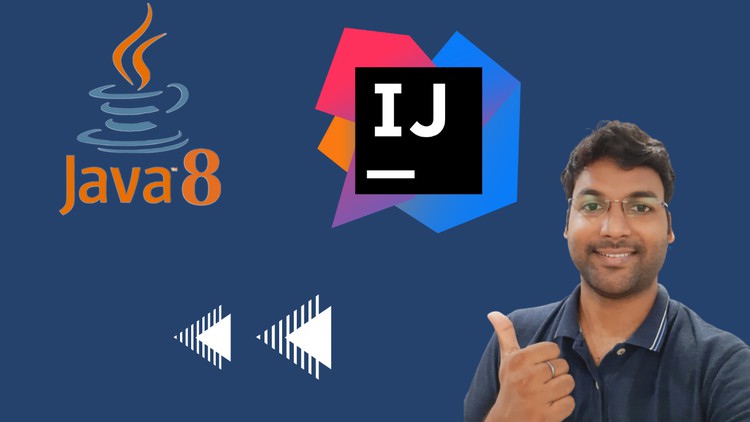
Comprehensive Hands-On Course for Java Developers to Master Stream Processing in Java 8
What you will learn
Introduction to Java 8 Streams: Understand the concept of streams, their benefits, and how they differ from traditional collections.
Stream Operations: Explore various stream operations such as filtering, mapping, sorting, and reducing to perform complex data transformations.
Intermediate and Terminal Operations: Learn about intermediate operations and terminal operations, and how they work together in a stream pipeline.
Stream Parallelization: Explore parallel stream processing and how to leverage multi-core processors for improved performance.
Description
The Stream API in Java 8: Comprehensive Guide is a comprehensive course that provides a deep understanding of the Stream API in Java 8. Streams offer powerful capabilities for efficient and functional data processing, and this course aims to equip you with the knowledge and practical skills to leverage this feature effectively.
The course begins with an introduction to streams, exploring how they work and comparing them to traditional collections. You will learn how to create stream instances and understand the concepts of intermediate, terminal, and short-circuit operations.
The course then delves into various stream operations, guiding you through hands-on labs to solidify your understanding. You will explore operations such as forEach(), collect(), toArray(), map(), flatMap(), distinct(), count(), sorted(), filtering, reducing, and more. Additionally, you will learn how to customize sorting using a Comparator and work with limiting, skipping, peeking, and matching operations.
Numeric streams, a specialized form of streams for numeric data, are covered in a dedicated section. You will discover how to work with range operations, perform calculations on numeric streams, and handle boxing and unboxing of values.
The course also covers terminal operations, which are used to produce a final result from a stream. You will learn about joining, counting, mapping, minBy(), maxBy(), sum(), avg(), groupingBy(), partitioningBy(), and other essential terminal operations.
In addition to the core concepts and operations, the course includes a section on important logical programs frequently encountered in interviews. You will have the opportunity to practice solving these programs using the Stream API.
Parallel stream processing is another key topic covered in the course. You will understand the concepts behind parallel streams, learn how they work, build parallel stream pipelines, and compare the performance of sequential versus parallel streams. Furthermore, you will gain insights into scenarios where using parallel streams may not be beneficial.
By the end of this comprehensive guide, you will have a strong grasp of the Stream API in Java 8 and be capable of effectively utilizing streams for data processing tasks. Join now and enhance your Java skills with the power of stream processing!
Note: The course content mentioned above provides a brief overview of the topics covered. The actual course may include additional subtopics and exercises to enhance the learning experience.
Content